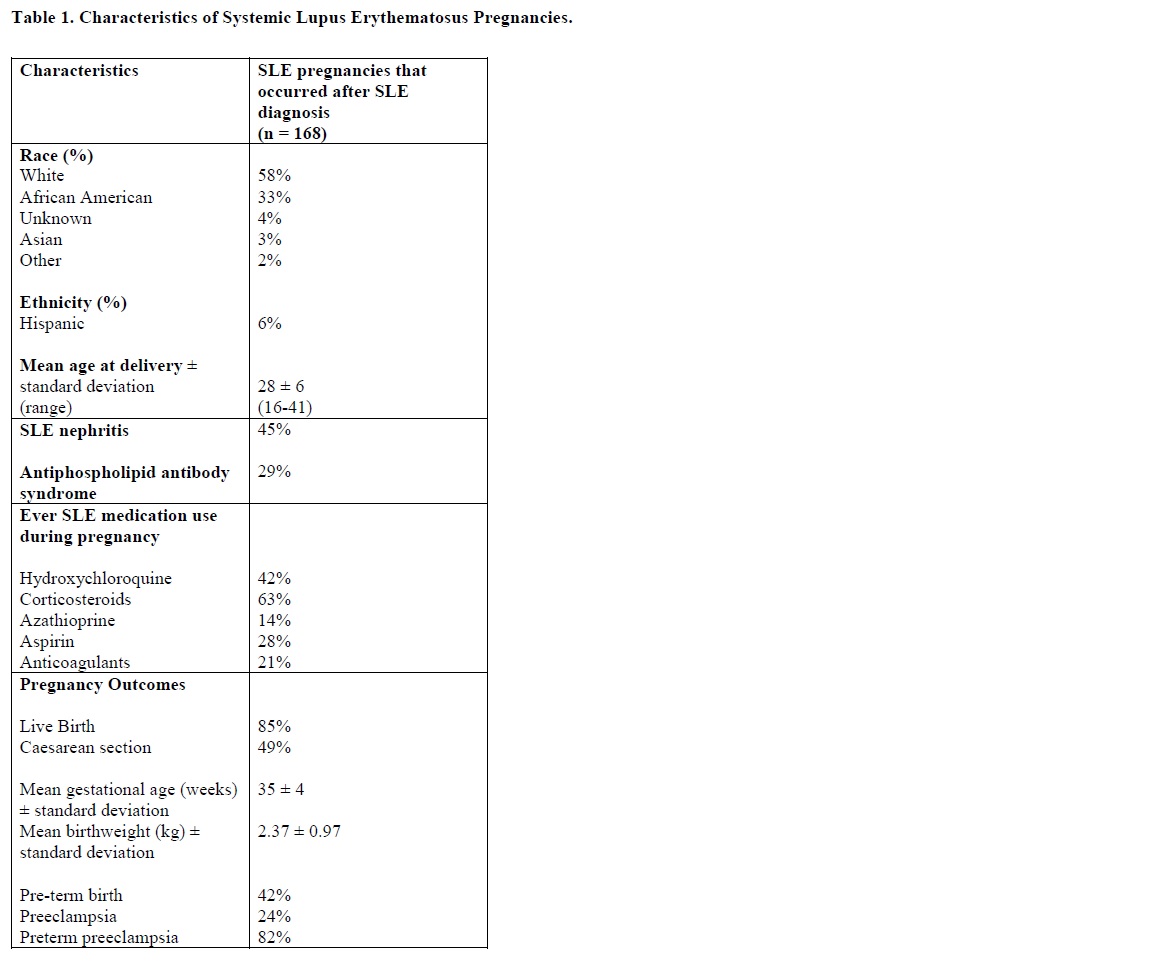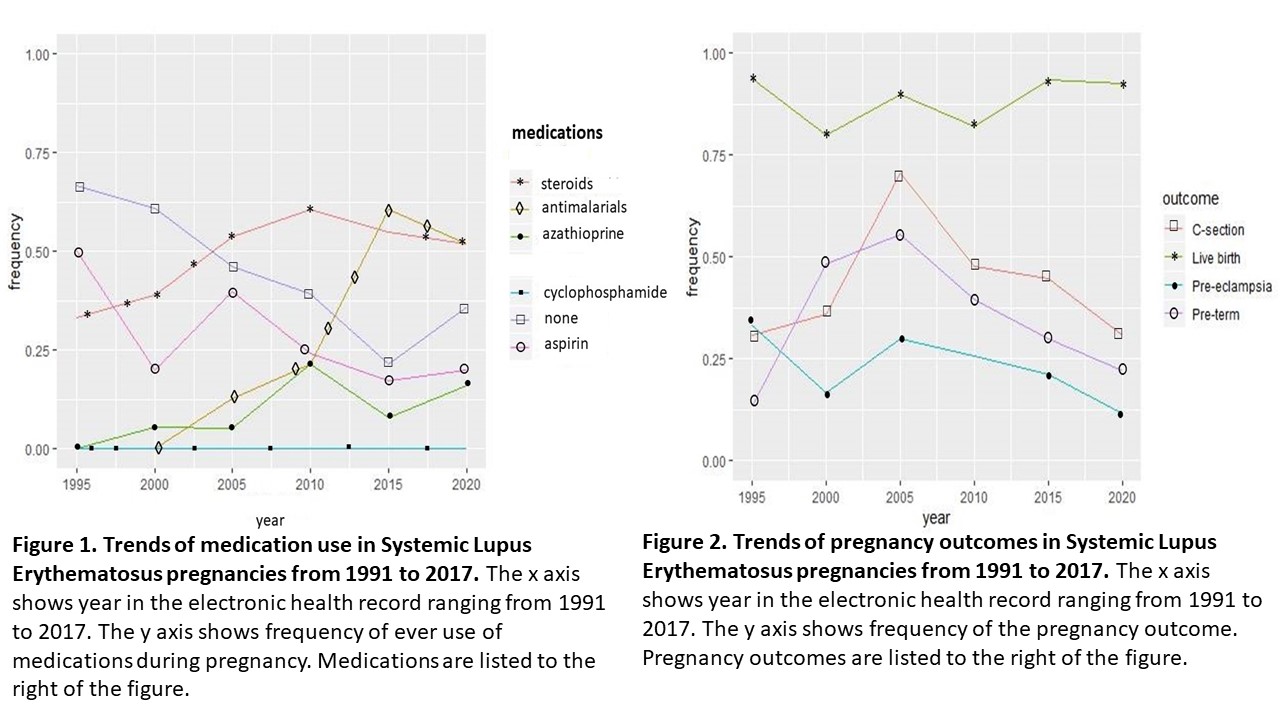Session Information
Session Type: Poster Session D
Session Time: 9:00AM-11:00AM
Background/Purpose: Studying pregnancy in systemic lupus erythematosus (SLE) is difficult given its relative rarity. Electronic health record (EHR) contain longitudinal data to serve as a powerful tool. Using a previously validated algorithm, we identified SLE pregnancies in a large EHR. We then examined demographics, medications, and outcomes in SLE pregnancies from 1991 to 2017.
Methods: We used a de-identified EHR with over 3 million subjects. We selected individuals using a validated algorithm of ≥ 4 counts of the SLE ICD-9 (710.0) or ICD-10 codes (M32.1*, M32.8, M32.9) and ≥ 1 ICD-9 or ICD-10 code for pregnancy-related diagnoses yielding 234 potential subjects. We extracted demographic, disease characteristics, medications, and pregnancy outcomes from chart review. SLE cases were diagnosed by a rheumatologist. We primarily analyzed only pregnancies that occurred after SLE diagnosis but then compared pregnancy outcomes before and after SLE diagnosis. SLE medication use was defined as ever use during pregnancy. In addition to a cross-sectional analysis of pregnancy outcomes, we assessed outcomes and medication use over time in 5 year increments.
Results: Of the 234 potential SLE subjects with pregnancies, there were 208 total pregnancies to definite SLE cases with 168 pregnancies occurring after SLE diagnosis and 40 pregnancies occurring before SLE diagnosis. Of 168 pregnancies that occurred after SLE diagnosis, 58% were to White women and 33% to African American women with 45% complicated by SLE nephritis and 29% antiphospholipid antibody syndrome (Table 1). Overall, SLE medication use was low with 42% of pregnancies with antimalarial use and 28% with aspirin use. Aspirin use was low over time. Antimalarial use increased over time with a peak of 62% in 2015 (Figure 1). Overall, live birth rate was 85% with 49% delivering surgically. The preterm birth rate was 42%. Preeclampsia complicated 24% of pregnancies with most occurring preterm at 82%. Mean gestational age was 35 weeks. Over time, live birth rates were similar with an increase in Caesarean section and preterm deliveries in 2005 with a subsequent decline (Figure 2). Rates for pregnancy outcome were not significantly different in pregnancies occurring before vs. after SLE diagnosis.
Conclusion: Using a large EHR, we demonstrate higher than expected rates of preterm birth and preeclampsia in SLE. These rates have not improved over time. Recommended medications in SLE pregnancy, particularly aspirin, are not dramatically increasing over time despite recommendations for use in all SLE pregnancies. These trends demonstrate the need for guideline implementation to improve SLE pregnancy outcomes.
To cite this abstract in AMA style:
Barnado A, Camai A, Wheless L. Trends of Pregnancy Outcomes in a Large Electronic Health Record Cohort of Systemic Lupus Erythematosus Patients [abstract]. Arthritis Rheumatol. 2020; 72 (suppl 10). https://acrabstracts.org/abstract/trends-of-pregnancy-outcomes-in-a-large-electronic-health-record-cohort-of-systemic-lupus-erythematosus-patients/. Accessed .« Back to ACR Convergence 2020
ACR Meeting Abstracts - https://acrabstracts.org/abstract/trends-of-pregnancy-outcomes-in-a-large-electronic-health-record-cohort-of-systemic-lupus-erythematosus-patients/


